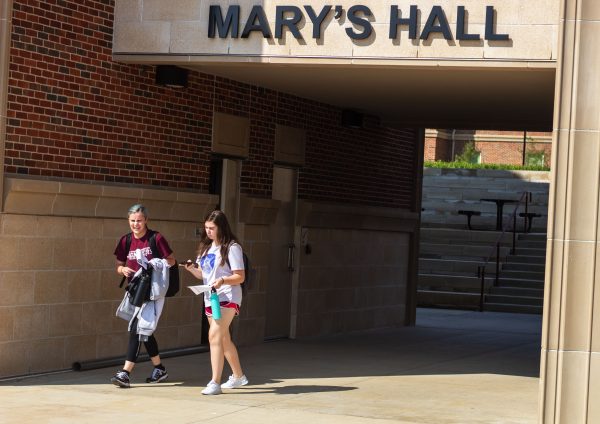Dear Editor:
As Chair of the Department of English, Speech, and Foreign Languages, I was surprised to see Emily Nickles’ editorial last week lamenting the woes of being an English major at TWU. She failed to share her concerns with her advisor or with me. The department informed students of the coming changes to the major in Spring 2015, well in advance. They were neither “messy” nor “unfortunate,” as Ms. Nickles alleges.
Ms. Nickles is correct in that we have made significant changes to the English major this year—moving from two tracks to three and significantly revising the structure of the curriculum. She fails to recognize, however, that the department has worked diligently to support students like her who were already in the program. It is true that old course numbers have disappeared, but in their place are more flexible courses that will provide a wider variety of course topics—something graduating students have told us they wanted. The new tracks within the program will also provide a much stronger foundation for English majors who want to move directly into the workforce rather than attending graduate school or teaching in secondary schools, again a change students told us they wanted
.
In re-reading the editorial, I can find only two specific complaints that we within the department could address: that we did not publish a list of approved course substitutions for students on the previous degree plan and that the course rotation on our web page had not been updated to reflect the changed program.
Let me first address the complaint that we did not publish a list of approved course substitutions. What Ms. Nickles sees as a failure, I see as a strength. Rather than creating a one-size-fits-all approach, the department has encouraged majors to work closely with their advisors to find the best course substitutions. I will offer one example. A student on the same plan Ms. Nickles is on approached me about using Methods of Teaching English as part of her degree plan. At first glance, the course did not fulfill the requirement on her degree plan for an upper-division literature elective, and there were many literature options to choose from. The student explained, however, that after graduating, she had decided to seek alternate-route certification to teach high school English. Knowing that this methods course would better serve the student’s long-term goals, I approved the substitution. It was both in keeping with the spirit of the new plan and would advance her personal goals.
This type of negotiation can only take place on a one-to-one basis. This approach is admittedly more time intensive for students—and for faculty advisors. It does require that students work with their advisors and avoid self-advising (something we always discourage). It also requires that students plan in advance to see their advisors prior to registration. This approach, however, is in the best interests of the students. The outcomes of individual advising are tailored to the student and ensure that we do NOT delay a student’s graduation.
Next, let me address the complaint that the course rotation was out of date. Given the major revisions we have made, Ms. Nickles was correct. The department, however, does not control that link on the web site. Another unit on campus must upload the update, and like Ms. Nickles, we had been waiting to see it published. The most current versions are always available from the department. Had I known that the link on the web site was an impediment to students, I might have requested the change earlier. In any case, the updated version is now available.
It should go without saying that if a student hopes to graduate on time, the student must fulfill her responsibilities by seeking advising, enrolling as advised, earning appropriate credits, and completing courses on time. It is unfortunate that Ms. Nickles’ health issues may delay her graduation, but changes to the English major should not. Any time a program undertakes a major revision, there will be students who are caught between new program and old. Our commitment is to ensure that the changes do not delay graduation and do not require students to take additional hours.
Finally, I applaud Ms. Nickles’ call for additional tenure-track faculty members across campus. I agree, and I think most faculty members on campus would, too. Our department has repeatedly requested, and will continue to request, additional permanent faculty positions. While we in ESFL are fortunate to have a strong cadre of high quality adjunct faculty members (many with a PhD) who contribute in important ways to the department, we would all prefer to have full-time faculty who are devoted to serving exclusively TWU and our students. As the University has grown, there has been an attempt to increase the number of permanent faculty positions, but TWU faces the realities of limited financial resources. As an institution, we are constrained by both funding from the state and by the desire to keep tuition costs from rising too quickly.
In order to ensure that students are able to graduate in a timely manner, I am happy to assist personally students who are unable to resolve issues with their advisors. I have reached out to Ms. Nickles to offer my assistance, and any English major can make an appointment to see me by calling 940-898-2326 and requesting an appointment through Lisa Grimaldo, our Administrative Assistant. We, as a faculty, are here to assist in any way we can, but we do need students to let us know when they encounter challenges.
Sincerely,
Genevieve West, PhD
Professor and Chair
Department of English, Speech, and Foreign Languages











Be First to Comment